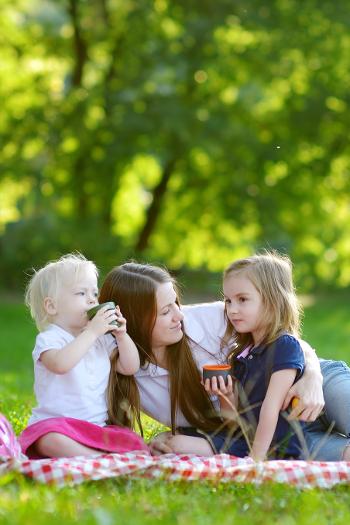It's the weekend
Duration/age

It’s the end of the week and work and school is over. What will you do on the weekend? Do you have plans or will you take it easy and catch up on jobs around the house?
Talk with your child about the weekend routine or what you’ve got planned. Are there regular things that you do like football or the shopping? Do you wait to see what the weather will be before planning what you will do?
Jake’s got football Saturday morning at 8’o clock. After the game we can go and play at the playground.
There is no sport this weekend so we can stay home all weekend.
Talk to your child about the order things need to be done in. Maybe there are jobs or events they can help with. Are there jobs that have to be done at a particular time or can you spread them out over the day?
It’s going to be sunny tomorrow so I’ll need to do the washing before we go to Baba’s for lunch.
We need to post Poppa his birthday present before the post office closes. It closes at 12’o’clock on Saturday.
Alternative tools
- Calendar
- Clock
- Visual routine
Skills this activity improves
Why does this matter?
Talking about the weekend and what will happen helps children to develop skills in planning, sequencing and measurement.
As you talk about what you’ll be doing and the order you’ll do it, your child will be learning about sequencing and predicting. As they explore the sequence of events they are exploring time and how long events take to complete.
Talking together about the weekend helps children to explore the different ways we can measure time. Time can be measured by a clock, with numbers or by counting how many days till something happens.
What does this lead to?
When you talk about time as an event or a routine, children are developing an understanding that we can describe time using different language. Time can be represented as a number on a clock, something that happens regularly or as a one-off event.
The language we use to describe time will help children to plan for an event and know when and how often it will occur.
“We usually go to Aunty Pam’s for lunch on Saturday but she is away so we won’t be going.”
Language to use
- Calendar, day, week, weekend
- Time, event, schedule, routine, regular
- Monday, Tuesday, Wednesday, Thursday, Friday, Saturday, Sunday
- School, kindy, childcare, work
Questions to use
- There is no school today so what should we do?
- Do you want to go and play at the park before or after you have a sleep?
- Do you want to help me do the shopping or stay at home with Dad?
- What does the weather look like today?
Useful tips
More ideas
- Create a rainy day special activity box for wet days at home.
- Have a pyjamas morning.
Variation by age
Three to five year olds
- Create a visual schedule for your family’s routine.
- Create a weekend book full of special ideas and activities.
- Go on a family picnic if the weather is nice. If it’s yucky have it inside.
- Create a shopping list for your child so they can help with shopping.
- Go to the weekend markets to buy fresh produce.
Questions to ask
- What should we do today?
- Is it too wet to do things outside today?
- What do we need to shop for today?
- How will we get to the shops?
- Who is going to go to the shops?
Language to use
- Inside, outside
- Weather, wet, cold, windy, sunny, fine, warm
- Morning, afternoon, lunchtime, breakfast, dinner time
- Shops, market, list, groceries, fresh produce


